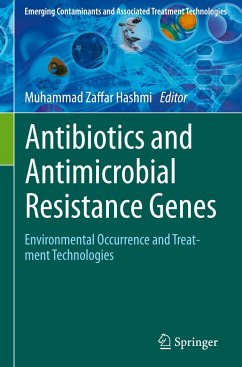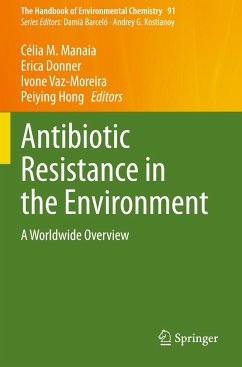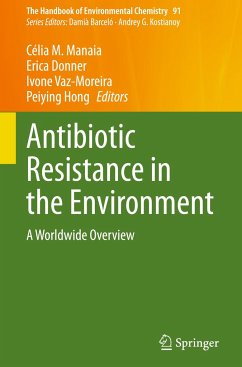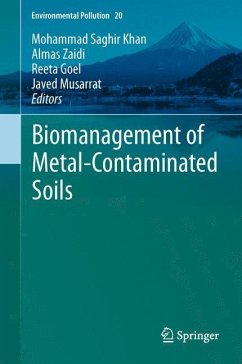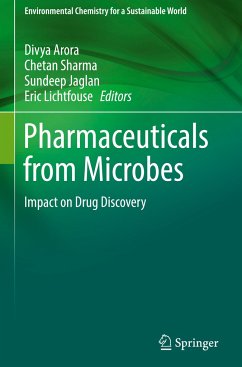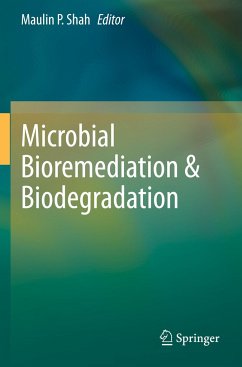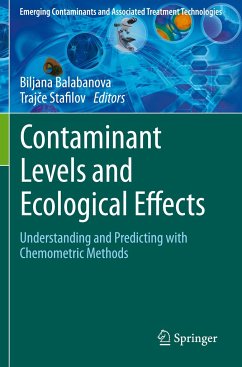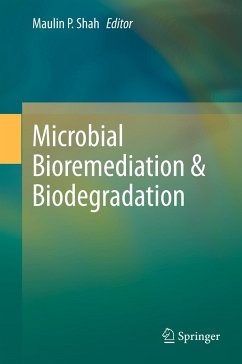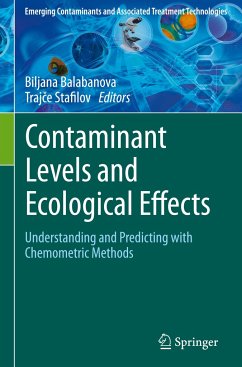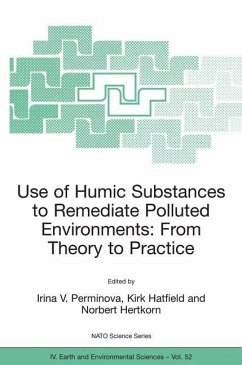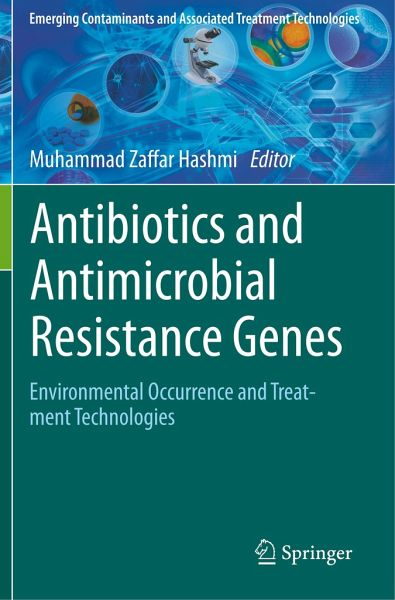
Antibiotics and Antimicrobial Resistance Genes
Environmental Occurrence and Treatment Technologies
Herausgegeben: Hashmi, Muhammad Zaffar
Versandkostenfrei!
Versandfertig in 6-10 Tagen
98,99 €
inkl. MwSt.

PAYBACK Punkte
49 °P sammeln!
This volume summarizes and updates information about antibiotics and antimicrobial resistance (AMR)/antibiotic resistant genes (ARG) production, including their entry routes in soil, air, water and sediment, their use in hospital and associated waste, global and temporal trends in use and spread of antibiotics, AMR and ARG. Antimicrobial/antibiotic resistance genes due to manure and agricultural waste applications, bioavailability, biomonitoring, and their Epidemiological, ecological and public health effects. The book addresses the antibiotic and AMR/ARG risk assessment and treatment technolo...
This volume summarizes and updates information about antibiotics and antimicrobial resistance (AMR)/antibiotic resistant genes (ARG) production, including their entry routes in soil, air, water and sediment, their use in hospital and associated waste, global and temporal trends in use and spread of antibiotics, AMR and ARG. Antimicrobial/antibiotic resistance genes due to manure and agricultural waste applications, bioavailability, biomonitoring, and their Epidemiological, ecological and public health effects. The book addresses the antibiotic and AMR/ARG risk assessment and treatment technologies, for managing antibiotics and AMR/ARG impacted environments
The book's expert contributions span 20 chapters, and offer a comprehensive framework for better understanding and analyzing the environmental and social impacts of antibiotics and AMR/ARGs. Readers will have access to recent and updated models regarding the interpretation of antibiotics and AMR/ARGs in environmentand biomonitoring studies, and will learn about the management options require to appropriately mitigate environmental contaminants and pollution. The book will be of interest to students, teachers, researchers, policy makers and environmental organizations.
The book's expert contributions span 20 chapters, and offer a comprehensive framework for better understanding and analyzing the environmental and social impacts of antibiotics and AMR/ARGs. Readers will have access to recent and updated models regarding the interpretation of antibiotics and AMR/ARGs in environmentand biomonitoring studies, and will learn about the management options require to appropriately mitigate environmental contaminants and pollution. The book will be of interest to students, teachers, researchers, policy makers and environmental organizations.



